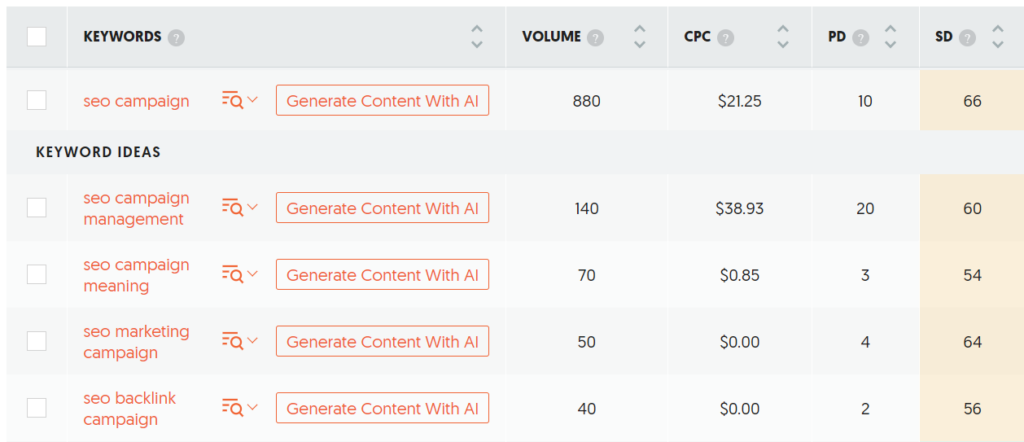Understanding a Searcher’s Intent, Topics in a specific niche, and the role of Keywords in SEO is mandatory. If you’re not careful, SEO efforts may fail to achieve positive results.
As seen, Google has been stressing enough upon one Thing – if the content doesn’t match the user’s Intent, chances of ranking well on search pages become slim.
In this resource, we’ve compiled a detailed guide on choosing Topics around search intent, compared to simple Keywords or search queries.
The story boils down to creating quality content around users’ expectations, according to Google preference on search pages, and to convert visitors into paying subscribers by solving, assessing, and managing their problems.
Introduction to Search Intent
Search Intent shows a user’s final destination in mind. For example – a search query’s type indicates a user’s intention on search engines – such as Informational. When choosing between Topics and Keywords, the search intent helps users ensure that the published content will drive more traffic, as compared to keywords with no traffic potential.
When creating content for organic reach, understanding queries’ search intent helps you correctly address users’ problems, helping them solve problems, and convert them easily.
Topics around Search Intent
To help you create content that converts users, you’ll need to understand – how to create content around search intent rather than keywords. In this case, you can target users’ destinations in the buying journey, giving you loyal customers at the end.
Let’s address the concept with an example.
A user searching for “Blog Themes under $50” is looking for affordable Blog themes for WordPress. Instead of creating content around “Theme characteristics”, providing Topical content around “affordable Themes for WordPress Blogs” will generate more sales. So, content around users’ intent helps users convert visitors from readers into paying subscribers. We can often call such scenarios as “satisfying users’ intent with quality content”.
Note: Searcher Intent is also called Search Intent, user intent, or queries intent in general. Along with positive signals, including seamless user experience, on-page session time, and page speed, creating content that satisfies users’ intent is the only way businesses can gain new customers, generate sales, and an increased ROI.
What are Topics?
Topics are broad terms in a specific niche. Compared to simple keywords, topics have a high search volume, more significant traffic potential, and hundreds of related or secondary keywords.
There is a critical difference between Topics and Keywords. A single piece of pillar content is ranked for hundreds of keywords, while a piece of content made for a specific keyword can rank for a narrow search, having less traffic potential in return.
What are Keywords?
A keyword is the search query, phrase, or collection of words a user types in a search engine. For example, if you’re looking for informational content on Marketing campaigns, “Marketing campaign cost” is an example of keywords – in this case.
Search engines have become more intelligent than in the past days. Creating content around keywords and not on Topics can hurt SEO expectations. For example – the content That helps users efficiently address and solve problems will be ranked well on search pages, as compared to content that target narrow, specific keywords, or long-form search terms.
Let’s describe another example.
After visiting a piece of low-quality content, users jump and let Google know – “the content on-page session was not satisfactory”. Conversely, if users spend time on a page, search engines understand the content is well-structured, helps the users, and satisfies users’ intent correctly.
Topics vs Keywords
The chances of success – while creating SEO content are defined explicitly by “how well you choose between topics and keywords or search queries.
Let’s describe topics and keywords using the example below.
Suppose the following two search queries have different search volumes. The one with a high volume is a Topic, while the other with a low search volume represents a Keyword. The fact that Topics have hundreds of related keywords inside, as compared to Keywords – makes them undeniable for SEO strategists.
SEO campaign: 880
SEO campaign cost: 50
Note: The more we narrow down a topic, the more we can transform our search term to keywords, which becomes narrower with a low search volume. Note that choosing Topics, compared to Keywords, affects how much traffic users can target using search rankings. Well, the point here is that simple keywords have no traffic potential, as they’re ranked for specific search terms only. On the other hand, broad topics are composed of search variations, often referred to as related, secondary, or relevant keywords.
Topics vs Keywords: Why Should You Care?
Let’s address the importance of topics and keywords in SEO. Here, we will address factors that help you understand – why you should care about Topics rather than Keywords.
- Topics have search traffic potential compared to keywords that target narrow concepts and specific kinds of users. In simple words, Topics are ranked for hundreds of related keywords, while Keywords have no secondary terms, keywords, or variations of queries.
- Topics are Seed or Primary trends in a specific niche. On the other hand, when creating content around keywords, satisfying the user’s intent only makes sense in specific scenarios.
- Google considers topics to rank for user’s queries and intent. As compared to the topics, keywords are grouped under Seed Topics, also called Parent Topics. If you rank for a keyword, a parent Topic will replace your rankings on search pages. While on the other hand, a topical content will drive more traffic, as ranking for related terms makes sense for broad topics.
Topics around Search Intent vs Keywords: How to Find Topics?
The final part: How do you find Topics for SEO content, the ones with more search traffic, hundreds of related keywords, and those that correctly satisfy searchers’ intent?
In the below lines, we will address two kinds of research.
- Finding topics around search intent – from zero point in a specific niche
- Finding topics around search intent by looking at users’ current state in buyer’s persona
Let’s address the first case.
The first case helps you find topics in a specific niche rather than keywords. Let’s take Marketing as a niche.
The rule of thumb is simple – pick relevant search queries with high search volume. In the lines below, we will find, validate, and confirm if a topic is worth choosing.
In this case, search for a trending phrase in a niche, such as marketing. In the following screenshot, the phrase “SEO campaign” is an example of a Topic, as hundreds of relevant keywords exist under it. Each related keyword discusses topic angles around the main topic and slightly decreases its search volume. This makes us believe that the “SEO campaign” is an example of a topic in the SEO niche. On the other hand, picking a low-volume keyword under “SEO campaign” is an example of keyword in this case.

Let’s address the second condition – how to find topics around a user’s current search intent.
In this case, by looking at the previous example – where (SEO campaign) is a topic with high search volume, we can assess by looking at Google’s search results page if we should create a specific type of content that correctly converts users searching for an SEO campaign.
Let’s describe the matter in more detail.
For example, if someone is searching for an SEO campaign, chances are. In that case, they are looking for information and to buy paid SEO campaign services, as the Google Search Results Page (GSRP) suggests rankings for sites explaining SEO campaigns and selling SEO campaign services.
In this case, we can pick commercial queries targeting the user’s intent, such as “buy SEO campaign services” in this scenario. Here – the “best SEO campaign” is an example of finding topics around users’ search intent based on “SEO campaign”, rather than Keywords.
How to write SEO-optimized Content according to the Search Intent?
Once you’ve found topics and search queries, here is how to create content correctly.
First, search the topics on Google and see what type of content Google has ranked for the search query(s).
Based on content types, query intent, and other signals, you should create content that correctly satisfies users’ intent. For example – if the keyword’s intent is informational, creating product pages will drive no rankings. Similarly – based on the content type, topic, or keyword’s purpose, you should proceed to create content for users’ conversions.
Here is a list of factors you’ll need to consider when creating content around topics for search intent.
- Assess the ranking pages’ relevancy against search queries. If the ranking sites, especially in the top five positions – are relevant, outranking existing pages will be hard. On the other hand, pick the keyword if the ranking sites are irrelevant.
- Google’s top 5 positions – see what type of content is ranking, such as informational articles, product pages, sales pages, forums, or official websites. The more low-quality content is ranking, the easier we can outrank existing pages.
- Assess the content’s quality – are you dealing with high DA sites, quality content, or the content ranking in the top 5 is thin, forums, or discussion threads?
- See if the ranking content is packed with backlinks. The more a ranking page has backlinks pointing to it, the harder it is to outrank.
Assessment on Google’s search page falls under manual assessment or competition analysis. You should only create content if you have analyzed ranking sites for a search query. The Google pages will tell you – the type of content, quality, backlinks, or ranking possibility before you’ve started creating a specific kind of content. In this case, a simple rule of thumb is to create content that is way better than the currently ranking pages. If you’ve found no chance of ranking in the top 10, consider making quality content to rank for hundreds of related keywords, often referred to as long-form content in SEO.
Over to You
Addressing the users’ intent correctly is one of the most sensitive matters when creating SEO content. Most people overlook the importance of search intent, which often causes ranking drops.
The best part of the trade is – “without satisfying searcher’s intent with quality content, your content wouldn’t rank on search pages”. So, before you start creating SEO content, doing homework to see if the proposed content will satisfy users’ intent is extremely important.
For more information on doing keyword research, assessing competition on search pages, and creating quality content, contact us for detailed consultation.






